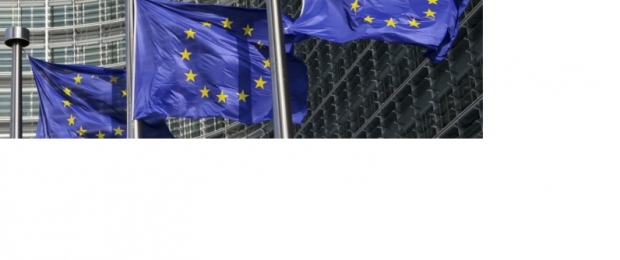
Time to abolish the EU's rotating presidency
The EU performance in foreign policy in the aftermath of September 11th has been underwhelming. European leaders have maintained unity on the substance of policy - a major step forward compared with the situation a decade ago. But too often, a handful of governments have dominated the agenda on issues that clearly fall within the EU's remit, such as the overall diplomatic strategy and the humanitarian effort. This has fuelled the charge that the EU itself has been sidelined. Moreover, distracting conflicts over intimate pre-summits and dinners - attended mostly by larger member states have marred attempts to project a united and coherent EU position.
The period since September 11th has highlighted some inherent weaknesses in the Common Foreign and Security Policy (CFSP). At the moment, responsibility for CFSP is split between three institutions: the Council of Ministers and Javier Solana, the EU's High Representative for foreign policy; the European Commission, including Chris Patten, commissioner for external relations; and the country holding the rotating presidency, presently Belgium. It is a messy and convoluted system.
As a result, the EU has not been good at conveying a coherent message either to its international partners or its own citizens. Of the three centres of power in CFSP, the rotating presidency is the one that adds least value. Worse, it is increasingly an obstacle to developing a more robust common foreign policy.
But what exactly are the presidency's tasks - and is there scope for streamlining existing arrangements? All Council meetings, including those of the EU's 15 foreign ministers, are chaired and prepared by the rotating presidency, helped by the Council secretariat. The presidency also expresses the EU's viewpoint in international organisations. In other words, every six months a different country speaks for and negotiates on behalf of the whole EU.
Originally, two reasons existed for changing the presidency twice a year. The first was to avoid a large, central bureaucracy. The member states were keen to underline that they, and not the Commission, were in charge of foreign policy co-operation. The second reason was to give every country - large or small - a chance to run the EU and gain kudos in the process.
But after several rounds of enlargement and with the EU assuming a greater role in foreign policy, many of the original reasons for a rotating presidency have disappeared. At the same time, three major problems have become apparent: a lack of continuity, poor external communication and inadequate credibility.
Too often, incoming presidencies cannot resist adding their pet priorities to the CFSP work programme. Finland, for example, insisted during its 1999 presidency that the EU develop new policies for the Baltics and Russia through the 'Northern Dimension'. This year, the Belgians argued that the African area of the Great Lakes deserved more EU attention - even if world attention was clearly focused on Afghanistan. Spain has already signalled that in 2002 it wants to revive the flagging Euro-Mediterranean partnership.
Solana has rightly criticised the tendency of each presidency to develop a new work programme. Undoubtedly, all these regions deserve EU attention, and the CFSP should draw upon each member state's particular experiences. But the habit of each new presidency to champion its own concerns reinforces the impression that EU involvement is episodic.
The external representation of the EU also remains a problem. The appointment of Javier Solana as 'Mr CFSP' was supposed to solve the question of who speaks for Europe. But in reality this is not quite the case. The EU is still sending three-person delegations around the world, consisting of representatives from the presidency, the Commission and Solana. Anna Lindh, the Swedish foreign minister, relates how she once wanted to speak to US secretary of state Colin Powell when Sweden was holding the presidency, only to be told that he was already on the line with Solana. She offered to hold the line, only to learn that Patten was already holding.
True, the dispersal of power is one hallmark of modern, pluralistic democracies. It is often unclear who speaks for the US: the White House, the State Department, or the Congress. But the current set-up is harmful to the EU?s ability to exert international influence.
Finally, there is the problem of credibility, particularly when a small country with limited diplomatic clout holds the presidency. Non-Europeans simply do not take the EU very seriously when this is the case. This may be insufferable prejudice on their part, but it is a political reality that the EU must take seriously.
The time for radical reform has arrived. The role of the rotating presidency in the CFSP should be abolished. The presidency's tasks - preparing agendas, chairing meetings and representing the Union externally - should be handed to Solana and his officials. A permanent centre, rather than an ever-changing periphery, should provide co-ordination and leadership. The Council secretariat would need more resources and personnel to perform these tasks adequately. That is why more national officials should be stationed in Brussels on short-term contracts.
Thankfully, the role of Mr CFSP is already growing rapidly, both as the face of EU foreign policy and as a person who can push policy forward. Solana now speaks on equal terms with Colin Powell or Kofi Annan, the UN Secretary General. The member states should welcome this development and accept its consequences by adding the future of the rotating presidency to the agenda of the next inter-governmental conference in 2004.
Some smaller member states will doubtless object to abolishing what they see as an institution which balances the dominance of the larger countries. But reform-minded countries should point out that abolition is a pre-condition for developing a credible EU foreign policy. The likely alternative is either continued underperformance in CFSP, or an out-and-out directoire of the Big Three.
